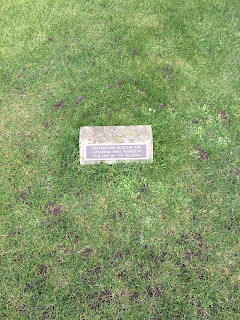Did you know that John Knox, after preaching a sermon in a church down the road, led a group of reformers to go tear down the cathedral in St. Andrews in 1559?
 |
| Leaving us with this |
 |
| and this. |
They dug tunnels under the castle in St. Andrews during a siege. There was actually a "mine" and a "countermine." You can go down them if you'd like, half-bent among the damp and the stones and the tiny growing things.
The concept of time is really problematic, actually. We're stuck with it, you know, we experience it and there has to be some validity to that experience, to the passing of instants that allow change to occur, but as soon as you start to try to nail down what we mean when we talk about time, to try to get at the entity underlying the shared experience communicated by words and concepts embodied by words, you end up with a definition of time as that which is measured by clocks, which is unsatisfying to say the least. And yet our lives in a sense depend on this thing which we cannot properly describe.
Newton once said, towards the end of his life, "I do not know what I may appear to the world, but to myself I seem to have been only like a boy, playing on the sea shore, and diverting myself, in now and then finding a smoother pebble, or a prettier shell than ordinary, whilst the great ocean of truth lay all undiscovered before me." I like that the person upon whose work the foundations of physics as it stands today was built also suffered from impostor syndrome, or at the very least an uncharacteristic humility.





No comments:
Post a Comment